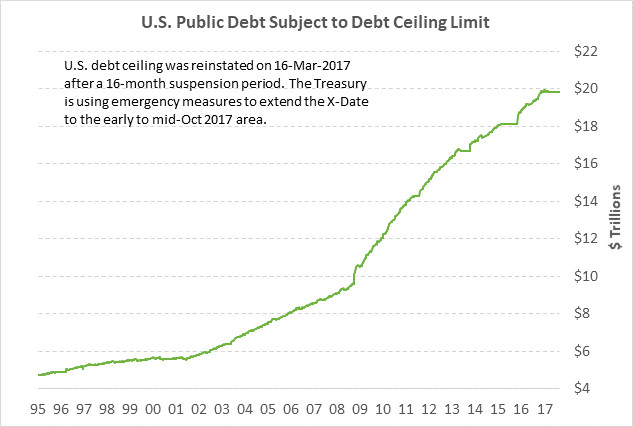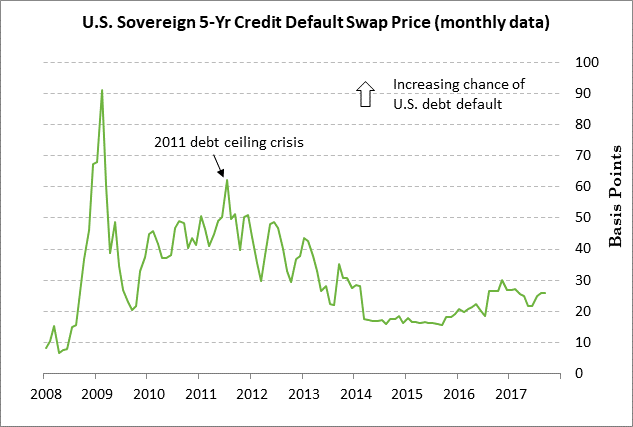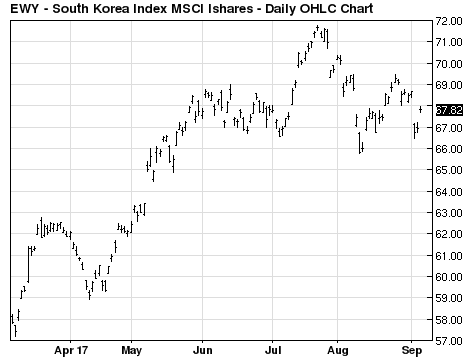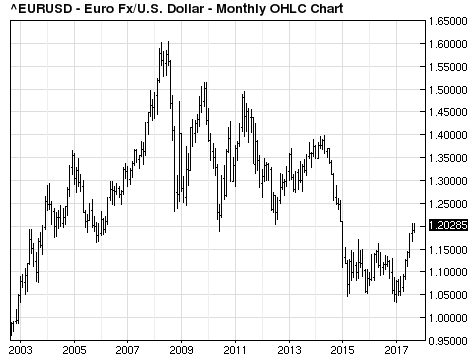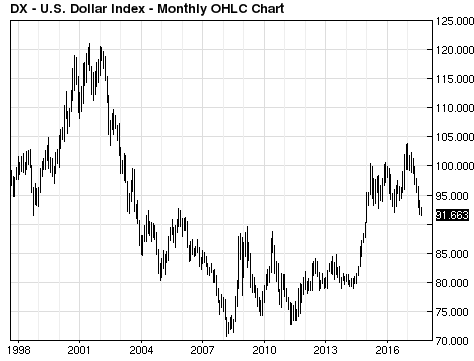- Debt ceiling measure sails through Senate
- North Korea remains a wild card for the markets
- EUR/USD rallies to a new 2-3/4 year high as Draghi fails protest the strong euro
Debt ceiling measure sails through Senate — The Senate on Thursday afternoon, by the wide margin of 80-17, approved the 3-part bill that includes Harvey emergency aid as well as a continuing resolution (CR) and a debt ceiling suspension through December 8. The package was agreed upon at Wednesday’s meeting between President Trump and Republican/Democratic leaders. The deal is expected to be approved by the House by Friday.
When the new debt ceiling suspension expires on December 8, the Treasury will be able to again use emergency measures to stay under the debt ceiling until February or March. That means that there will only be the threat of a government shutdown in early December when the CR expires. Congress will not have to address the debt ceiling until February or March.
The markets on Wednesday reacted positively to the deal that took the debt ceiling and a government shut-down off the table for at least three months. The stock market also gained support from the fact that the early resolution of the CR and debt ceiling issues will give Republicans more time to work on tax cuts, which are of key interest to the stock market.
North Korea remains a wild card for the markets — There is speculation that North Korea on Saturday (Sep 9) may launch another intercontinental ballistic missile to mark the anniversary date of the founding of the North Korean republic. North Korea’s last missile launch flew over Japan as a new provocation. If North Korea should fire a missile at or near Guam as threatened, the U.S. military could launch a retaliatory military strike of some sort, raising the possibility of a conflict that could quickly spiral out of control.
The Trump administration is pushing the UN Security Council for a new sanctions package against North Korea that includes an oil embargo, a ban on North Korean textile exports, and a prohibition on North Korean guest workers. The U.S. appears to face an uphill battle in getting Russia and China to go along with those tough new sanctions, which are designed to economically strangle North Korea.
The U.S. is pushing for a UN vote on the sanctions package this Monday (Sep 11). If the UN approves at least a watered down version of the sanctions package on Monday, North Korea early next week might lash out with another provocation that alarms the markets.
If the UN does not vote in favor of the stepped-up sanctions, Treasury Secretary Mnuchin has said he has prepared an executive order for President Trump to sign that would give the president the authority to halt trade and put sanctions on any nation that does business with North Korea. That executive order could spook the markets if it appears that Mr. Trump might use the order against Russia or China.
The Trump administration’s only real choice at this point is to dramatically step up sanctions against North Korea and hope that Kim Jong-un either (1) comes to the negotiating table for serious talks, or (2) is toppled by a military coup that perhaps ushers in a more cooperative government. The U.S. can also help build up military defenses in South Korea and Japan and even reintroduce nuclear weapons into South Korea. That would alarm China and perhaps cause China to increase its pressure on North Korea. A U.S. preemptive military strike against North Korea isn’t a realistic option due to the massive collateral damage that would be suffered by South Korea and possibly Japan.
EUR/USD rallies to a new 2-3/4 year high as Draghi fails protest the strong euro — EUR/USD on Thursday closed at a new 2-3/4 year high after ECB President Draghi at his post-meeting press conference failed to voice much of a protest to the strength of the euro. He said that the euro’s volatility was a source of uncertainty for the inflation outlook, but he did not make any statements suggesting that the strong euro is a major concern for the ECB.
Mr. Draghi said that the QE discussion at this week’s meeting was “very, very preliminary” and that the “bulk” of the decisions on the QE program for 2018 will be made at the next meeting on Oct 26. That was in line with market expectations. The ECB left its interest rates and its guidance language unchanged, as expected.
The market consensus is that the ECB will taper its 60-billion-euro-per-month QE program down to zero during the first nine months of 2018. The ECB is not expected to start raising interest rates until 2019.

